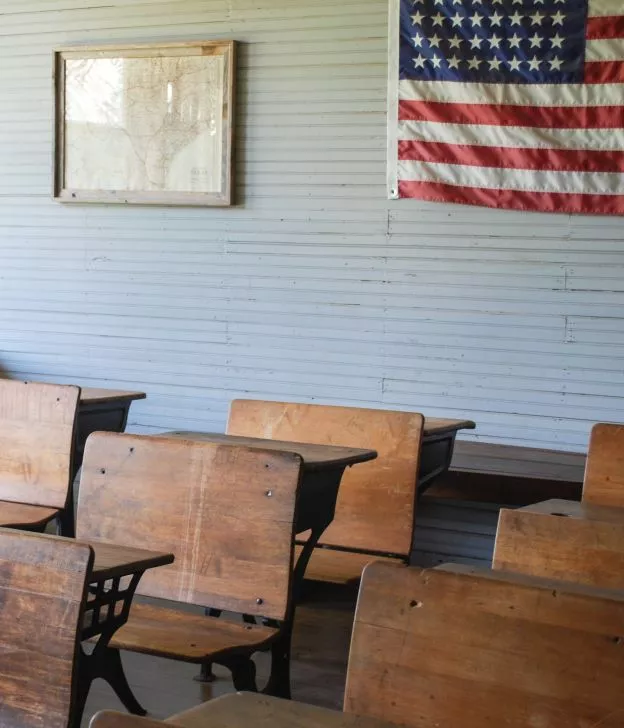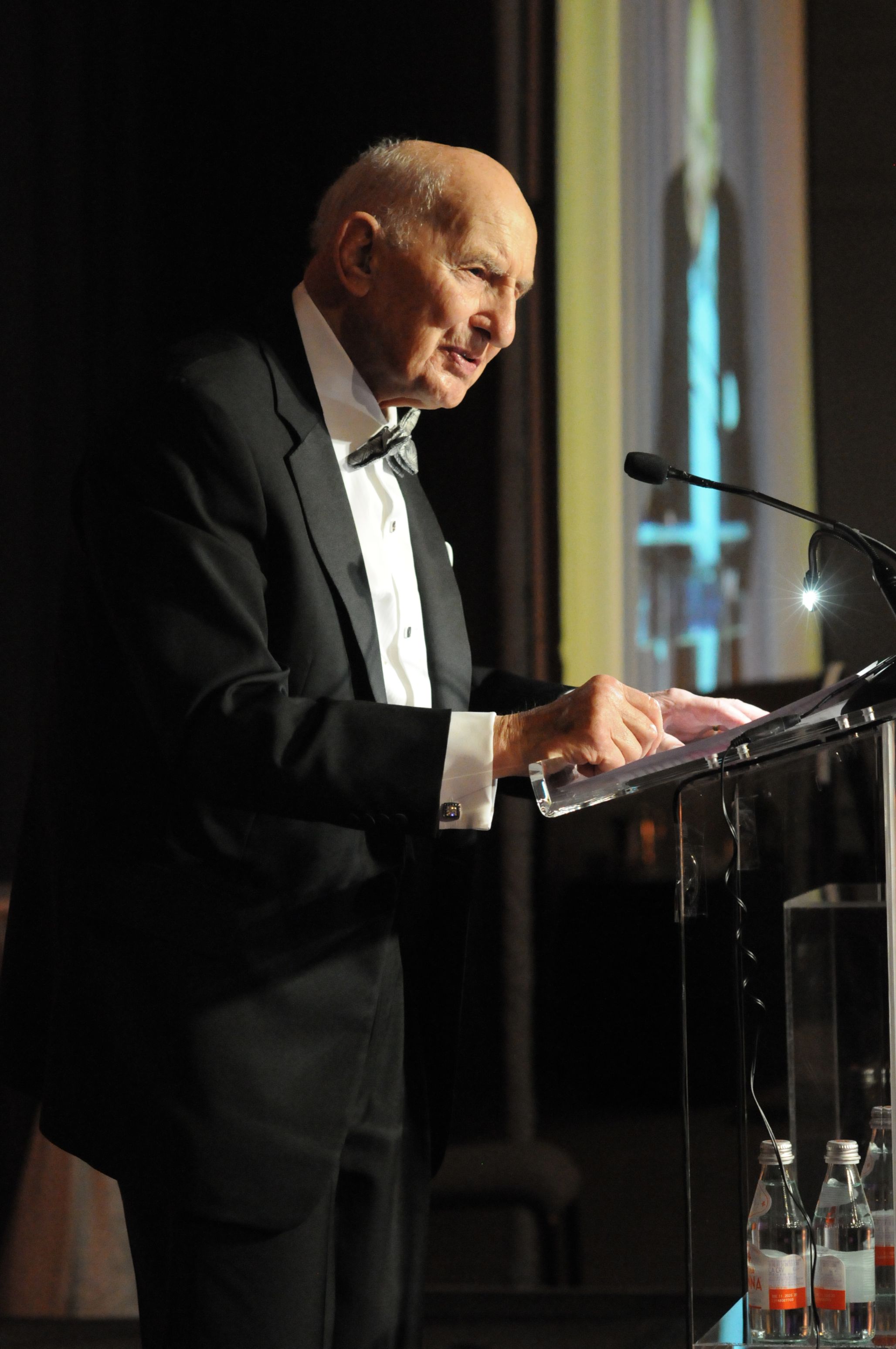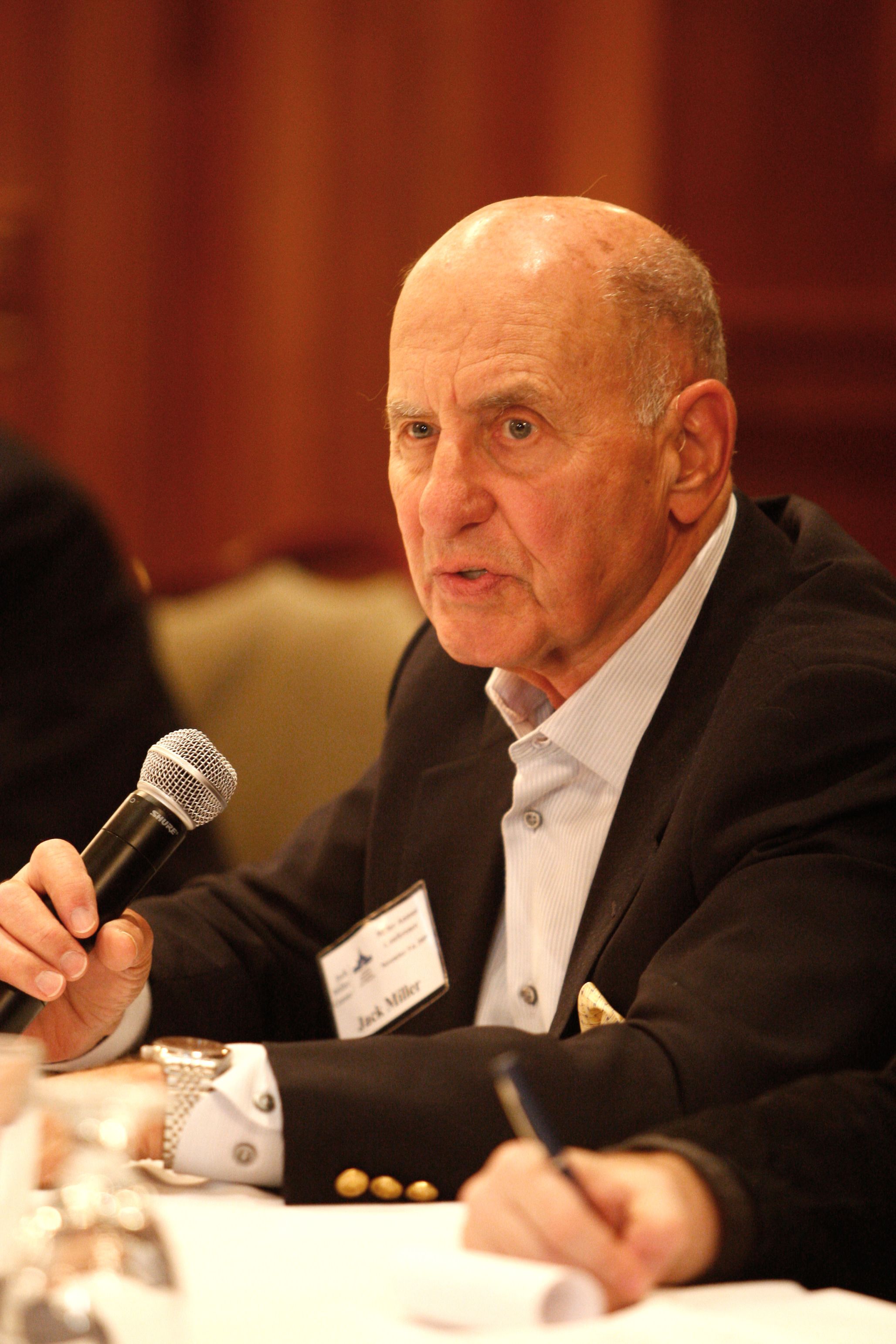
‘I’m afraid of the kids we’re leaving our country’ — a conversation with civics educator Jack Miller
After selling his company for millions, Miller dedicated his life to making sure young people understand America’s past and promise. Naomi Schaefer Riley. Nov 19, 2023
‘I’m Afraid of the Kids We’re Leaving Our Country’ — A Conversation with Civics Educator Jack Miller
“No,” Jack Miller tells me, “I am not at all surprised” by what has been happening on college campuses the past few weeks.
“Students for Justice in Palestine has been very active on campuses across the country for many, many years. … They’re very organized. They’re well-funded by our friends in Iran,” he explained. But on a deeper level, he said, “I’m not surprised about young people joining in (because) they’ve had a lousy education.”

Miller, 95, is the founder of the Jack Miller Center for Teaching America’s Founding Principles and History. And as many donors to higher education struggle to understand how elite universities became hotbeds for the celebration of murder, anti-Americanism and antisemitism and how to fix it, Miller has some thoughts.
“Instead of e pluribus unum, they have e unum pluribus,” Miller notes of the current trend. While “intersectionality” is relatively recent, the idea that people can be reduced to their group identity has been around for some time and runs contrary to the idea of the United States as a “nation of individuals … who are all created equal.”
It’s an idea that “comes straight out of the Torah,” says Miller, who is Jewish. “They all came from Adam, all created in the image of God.” But now he notes that campus progressives only think in terms of the “oppressor and the oppressed.” As soon as Israel became a strong country, in Miller’s view, then liberals would no longer defend it.
Miller did not have a lot of experience with elite higher education until about 20 years ago. He grew up in a middle-class neighborhood in Chicago, worked a lot of odd jobs, went to the University of Illinois, and then started a mail-order office supply company by going door to door. That company, Quill, was eventually purchased by Staples in 1998 for $685 million, at which point Miller had a little more time to pay attention to what college kids were up to.
He noticed how few students had read the Declaration of Independence or the Constitution or the Federalist Papers, and how they didn’t understand the basic ideas on which the country was built. In the years since its founding, the Miller Center has trained more than a thousand professors with seminars and lectures on the American founding, as well as supporting their work and initiatives on more than 300 campuses.
They estimate having reached more than a million college students with these important ideas. And more recently, the center has moved into K-12 education and the professors are now conducting trainings for elementary and high school teachers. They run programs to celebrate Constitution Day and to ensure that more children understand civics.
Miller laments that many colleges have abandoned traditions of civil dialogue and rational debate.
“If you want to learn something, which is what universities are supposed to be about, then they should have a lot of freedom of speech.”
He went on: “Somebody could say, ‘Well, I think socialism is a terrific thing.’ And the next guy says, ‘Yeah, but you know what? Show me any socialist nation that’s been successful,’ and so on, and you go back and forth.’”
But what’s happening on campus right now is not that. In one of the few pessimistic notes he sounds during our conversation, Miller says, “I’m not afraid of the country we’re leaving our kids, I’m afraid of the kids we’re leaving our country.”

The center doesn’t generally work with college administrators. Miller knows how easily university leaders can redirect funds. Early in his philanthropic career, he gave several million dollars for the creation of three laboratories to study peripheral neuropathy, a condition he has. But a few years in, it turned out that the labs were working on other things. “I was stupid in those days because I gave money with the only condition being that I could get back any unspent amount.” Now, he says, he is a “big believer in donor intent. Donors have to be more specific. They have to say, ‘OK, I’ll give you money, but I’m not giving charity. I’m making an investment. And just as I would in business, I expect a return on my investment for this specific purpose.”
He has watched as donors have given “hundreds of millions of dollars to colleges and universities who already have huge endowments.” Miller mentions Citadel CEO Ken Griffin’s recent donation of $300 million to Harvard. “He gave all that money with no conditions, to use any way they want. Well, look how they’re using it.” They don’t have to fund the Miller Center, of course, but “if those guys take that money and throw it into … organizations that align exactly with what their goals and ideas, that could make a huge difference.”
He recalls the words of his father-in-law, who gave him a small loan to start his first business: “Nothing happens until you get an order.” Well, he adds, “nothing happens until you get funding.”
On a smaller scale, Miller recommends getting Wilfred McClay’s history of the United States, “Land of Hope,” into the hands of more American teenagers. “We could do a lot,” he said.
Naomi Schaefer Riley is a senior fellow at the American Enterprise Institute, a Deseret News contributor and the author of “No Way to Treat a Child: How the Foster Care System, Family Courts, and Racial Activists Are Wrecking Young Lives,” among other books.
